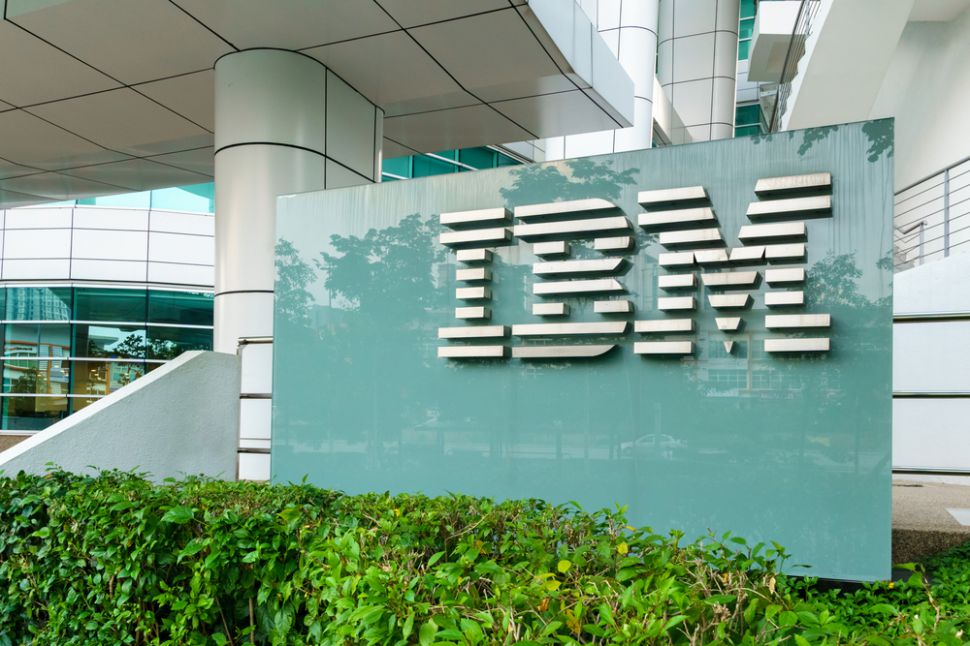IBM goes all-in on making software cloud-native
Build once, run anywhere following Red Hat deal

IBM has announced that it has transformed its software portfolio to be cloud-native and optimized it to run on Red Hat OpenShift enabling enterprises to build mission-critical applications once and run them on all leading public clouds including AWS, Microsoft Azure, Google Cloud Platform, Alibaba and IBM Cloud and on private clouds.
The software giant's new cloud-native capabilities will be delivered as pre-integrated solutions called IBM Cloud Paks. The IBM-certified and containerized software will provide both a common operating model as well as a common set of services including identity management, security, monitoring and logging. IBM Cloud Paks are designed to help improve visibility and control across clouds together with a unified and intuitive dashboard.
The software and services announced by IBM, which include over 100 products across the company's expansive software portfolio optimized to run on Red Hat OpenShift, will be delivered on its hybrid multicloud platform. The platform itself is built on open source technologies such as Red Hat OpenShift and Red Hat Enterprise Linux.
- The IBM Cloud: an open approach to rapid innovation
- Wimbledon 2019: How IBM AI made this the most immersive tournament ever
- IBM frees Watson AI to work on any cloud
Senior vice president of IBM's cloud and cognitive software division, Arvind Krishna explained why the company is bringing its software from the data center to the cloud, saying:
“IBM is unleashing its software from the data center to fuel the enterprise workload race to the cloud. This will further position IBM the industry leader in the more than $1 trillion dollar hybrid cloud opportunity. We are providing the essential tools enterprises need to make their multi-year journey to cloud on common, open standards that can reach across clouds, across applications and across vendors with Red Hat.”
IBM Cloud Paks
IBM Cloud Paks provide full software support and help protect the entire stack from hardware to applications to help customers rapidly migrate, integrate and modernize mission-critical applications on any cloud. The Cloud Paks can be deployed easily and are delivered as packages tailored for specific use cases with a consumption-based pricing model.
IBM's first five Cloud Paks are available today and include the Cloud Pak for Data, Cloud Pak for Applications, Cloud Pak for Automation and the Cloud Pak for Multicloud Management.
Are you a pro? Subscribe to our newsletter
Sign up to the TechRadar Pro newsletter to get all the top news, opinion, features and guidance your business needs to succeed!
President and CEO of Red Hat, Jim Whitehurst provided further insight on IBM's announcement, saying:
“Red Hat is unlocking innovation with Linux-based technologies, including containers and Kubernetes, which have become the fundamental building blocks of hybrid cloud environments. This open hybrid cloud foundation is what enables the vision of any app, anywhere, anytime. Combined with IBM’s strong industry expertise and supported by a vast ecosystem of passionate developers and partners, customers can create modern apps with the technologies of their choice and the flexibility to deploy in the best environment for the app - whether that is on-premises or across multiple public clouds.”
- We've also highlighted the best cloud hosting services of 2019
After working with the TechRadar Pro team for the last several years, Anthony is now the security and networking editor at Tom’s Guide where he covers everything from data breaches and ransomware gangs to the best way to cover your whole home or business with Wi-Fi. When not writing, you can find him tinkering with PCs and game consoles, managing cables and upgrading his smart home.
